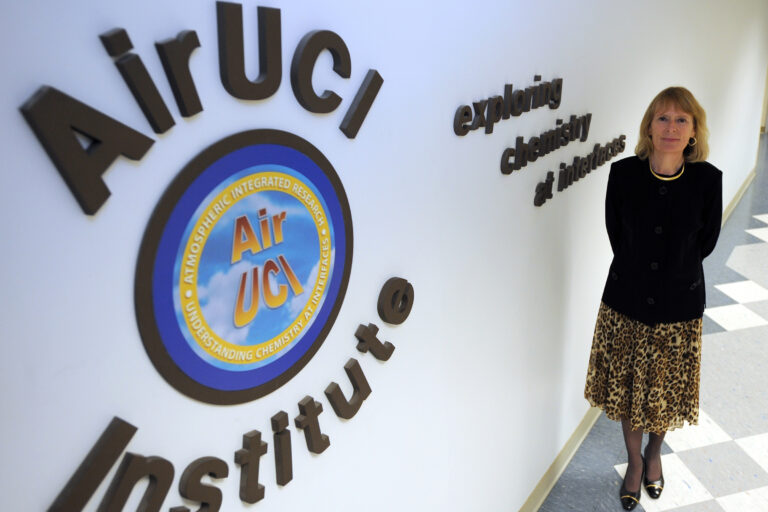AirUCI institute awarded nearly $2 million to study non-tailpipe vehicle emissions

“This unique collaboration across disciplines and communities including an active environmental justice group in Santa Ana, Calif., will provide a broad assessment of the current impact of brake and tire wear as well as future likely scenarios as fossil fuels are phased out in the transportation sector,” said Barbara Finlayson-Pitts, co-director of the AirUCI institute.
Irvine, Calif., Sept. 23, 2021 — Vehicle tailpipe emissions have been the subject of exhaustive study and government regulations over the past several decades, but other categories of pollution, particularly the variety that results from friction being applied to brakes and tires, have been less investigated until now.
The institute of Atmospheric Integrated Research at the University of California, Irvine, in partnership with Madison Park Neighborhood Association in Santa Ana, has been awarded $1.9 million by the California Attorney General’s office to study the health impacts of non-tailpipe vehicle pollutants.
An interdisciplinary team of AirUCI researchers – including chemists, engineers and public health experts – will use the funds to investigate the composition, toxicity, incidence and potential health effects of airborne particles from cars and trucks.
“We are excited to have the opportunity to integrate chemistry and engineering approaches with health effects and anthropological studies of non-tailpipe emissions associated with brakes and tires and their impacts on a local underserved community,” said principal investigator Barbara Finlayson-Pitts, co-director of AirUCI. “This unique collaboration across disciplines and communities including an active environmental justice group in Santa Ana, Calif., will provide a broad assessment of the current impact of brake and tire wear as well as future likely scenarios as fossil fuels are phased out in the transportation sector.”
Finlayson-Pitts said that even though emissions of carbon monoxide, carbon dioxide and other gases are expected to drop in the future as internal combustion engines decline as a preferred power source for vehicles, these other sources of airborne grit will persist.
Neighborhoods and communities that are bisected by busy freeways and high-capacity roads are predominantly home to lower-income residents. For that reason, UCI researchers will collaborate with partners in Santa Ana to gain a better understanding of the cardiovascular and reproductive impacts on these populations.
The AirUCI scientists will conduct real-time air sampling studies, map ambient particulate matter levels in Santa Ana, organize ethnographic interviews and focus groups to gather perspectives on air pollution in environmental justice communities, and they will host data workshops and community meetings to communicate project findings.
This project is one of several initiatives supported by California’s Automobile Emissions Research and Technology Fund. The grants, totaling $10 million, stem from a 2016 settlement with Volkswagen over the automaker’s emissions cheating scandal.
About the University of California, Irvine: Founded in 1965, UCI is the youngest member of the prestigious Association of American Universities and is ranked among the nation’s top 10 public universities by U.S. News & World Report. The campus has produced three Nobel laureates and is known for its academic achievement, premier research, innovation and anteater mascot. Led by Chancellor Howard Gillman, UCI has more than 36,000 students and offers 224 degree programs. It’s located in one of the world’s safest and most economically vibrant communities and is Orange County’s second-largest employer, contributing $7 billion annually to the local economy and $8 billion statewide. For more on UCI, visit www.uci.edu.
Media access: Radio programs/stations may, for a fee, use an on-campus ISDN line to interview UCI faculty and experts, subject to availability and university approval. For more UCI news, visit news.uci.edu. Additional resources for journalists may be found at communications.uci.edu/for-journalists.
About UCI’s Brilliant Future campaign: Publicly launched on Oct. 4, 2019, the Brilliant Future campaign aims to raise awareness and support for UCI. By engaging 75,000 alumni and garnering $2 billion in philanthropic investment, UCI seeks to reach new heights of excellence in student success, health and wellness, research and more. Learn more by visiting brilliantfuture.uci.edu.
